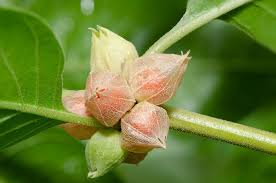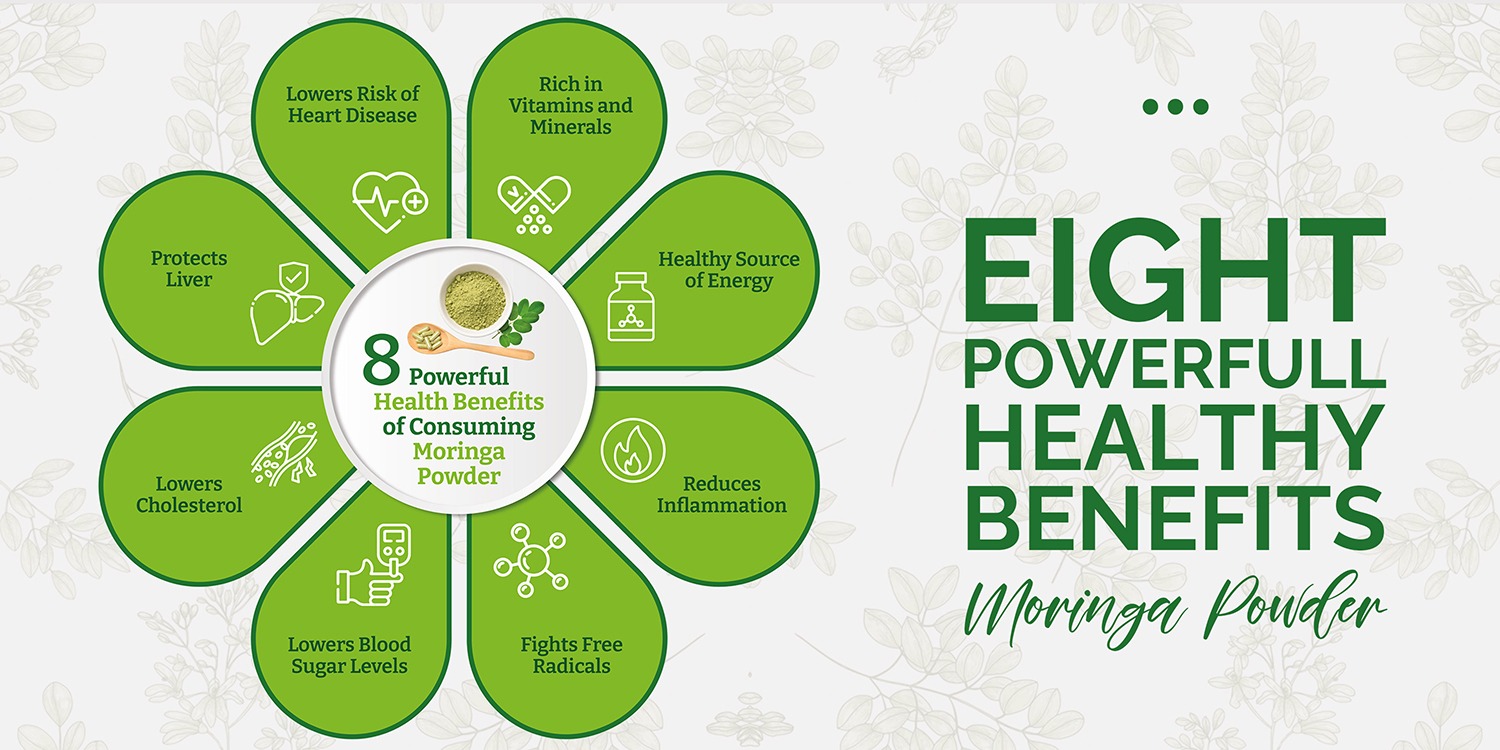Moringa vs Ashwagandha
Are you looking for natural ways to improve your health and wellness? Moringa and Ashwagandha are two popular herbs that have been used for centuries to promote good health. Both are known for their numerous benefits, but they have distinct differences that make them better suited for specific conditions. In this article, we will take an in-depth look at Moringa vs Ashwagandha and compare the benefits and uses of each herb to help you decide which one might be best for your individual needs. It’s important to understand the differences between these herbs so that you can make an informed decision about which one to try. Read on to learn more about Moringa and Ashwagandha and their unique benefits.
Unlocking the Health Benefits of Moringa: A Nutrient-Dense Tree for Digestive Health, Blood Sugar Regulation, and More

Moringa is a nutrient-dense tree native to India that has gained popularity for its many health benefits. Its leaves, pods, and seeds are all edible and can be consumed in various forms such as teas, powders, or capsules. Moringa is known for its high nutrient content, which includes vitamins, minerals, and antioxidants. It has been shown to improve digestive health by reducing inflammation and promoting healthy gut bacteria. Moringa has also been found to regulate blood sugar levels, making it beneficial for those with diabetes or insulin resistance.
In addition, studies have shown that Moringa may have anti-cancer properties and can help to protect the liver. If you’re looking to improve your overall health and well-being, Moringa may be a great supplement to consider. However, it’s important to talk to your healthcare provider before adding any new supplement to your diet, especially if you’re taking any medications or have underlying health conditions.
Exploring the Health Benefits of Ashwagandha: A Powerful Adaptogenic Herb

Ashwagandha, also known as Withania somnifera, is a powerful adaptogenic herb that has been used in traditional Ayurvedic medicine for centuries. It is native to India and can be consumed in various forms such as capsules, powders, or teas. Ashwagandha is known for its ability to help the body cope with stress by reducing cortisol levels, which can lead to improved mood and reduced anxiety. It has also been shown to improve cognitive function and memory in adults with mild cognitive impairment. Ashwagandha has a positive impact on reproductive health, improving fertility in people. Moringa can induce calmness and relaxation because it controls the levels of dopamine, serotonin, and noradrenaline in the brain. As a result, moringa is quite effective in treating depression. Ashwagandha also has a positive impact on the brain because it reduces stress and anxiety.
Additionally, it may have anti-inflammatory properties that can help to alleviate joint pain and inflammation. If you’re looking for a natural way to manage stress, improve cognitive function, or support reproductive health, Ashwagandha might be a beneficial supplement to consider. However, it’s important to talk to your healthcare provider before adding any new supplement to your diet, especially if you’re taking any medications or have underlying health conditions.
Comparison of Moringa vs Ashwagandha
When it comes to comparing Moringa vs Ashwagandha, both herbs have their unique benefits and uses. While Moringa is known for its high nutrient content and digestive health benefits, Ashwagandha is a powerful adaptogenic herb that helps the body cope with stress and promotes cognitive function. Additionally, Ashwagandha has been shown to improve fertility and have anti-inflammatory properties.
When it comes to which herb to choose, it depends on what you’re looking to achieve. If you’re looking for an herb that can improve your overall nutrition and digestive health, Moringa might be a better choice for you. On the other hand, if you’re dealing with stress or cognitive decline, Ashwagandha may be a more suitable option.
Moringa extract is like a superpower that helps your body fight off germs and stay healthy. It also takes care of your liver and helps keep your blood sugar levels balanced. It can make you feel really strong and full of energy, and it even helps reduce any hurts or pains in your body. It’s like having a shield of protection! Ashwagandha is a powerful source of energy, improves stamina and boosters the immune system.
It’s important to note that both herbs are generally safe to consume in moderation, but it’s always a good idea to talk to your healthcare provider before adding any new supplements to your routine. They can help you determine which herb is right for you based on your individual needs and health history. In the end, the decision between Moringa and Ashwagandha ultimately comes down to your personal goals and preferences.
Choosing Between Moringa and Ashwagandha: Which Herb is Right for You?

In conclusion, both Moringa and Ashwagandha are herbs with a wide range of health benefits. While Moringa is known for its nutrient-dense properties and digestive health benefits, Ashwagandha is a powerful adaptogenic herb that helps the body cope with stress, improves cognitive function, and has anti-inflammatory properties.
If you’re considering adding either herb to your diet, it’s important to talk to your healthcare provider first to ensure that it’s safe and appropriate for you. It’s also important to note that while both herbs are generally safe, they may interact with certain medications or exacerbate certain health conditions.
When it comes to choosing between Moringa vs Ashwagandha, the decision ultimately depends on your personal goals and preferences. Whether you’re looking to improve your digestion, manage stress, or support cognitive function, both herbs have something to offer.
In summary, Moringa and Ashwagandha are both wonderful additions to a healthy diet and lifestyle. By incorporating these herbs into your routine, you may be able to experience a wide range of health benefits and support your overall well-being.
References
- Mishra, L.C., Singh, B.B., & Dagenais, S. (2000). Scientific basis for the therapeutic use of Withania somnifera (ashwagandha): a review. Alternative Medicine Review, 5(4), 334-346. Retrieved from https://www.ncbi.nlm.nih.gov/pubmed/10956379
- Prakash, A., & Kumar, A. (2012). Withania somnifera: an Indian ginseng. Progress in Neuro-Psychopharmacology and Biological Psychiatry, 39(1), 54-63. Retrieved from https://www.ncbi.nlm.nih.gov/pubmed/22549035
- Sreelatha, S., & Padma, P.R. (2009). Antioxidant activity and total phenolic content of Moringa oleifera leaves in two stages of maturity. Plant Foods for Human Nutrition, 64(4), 303-311. Retrieved from https://www.ncbi.nlm.nih.gov/pubmed/19838903
- Mishra, L.C., Singh, B.B., & Dagenais, S. (2000). Scientific basis for the therapeutic use of Withania somnifera (ashwagandha): a review. Alternative Medicine Review, 5(4), 334-346. Retrieved from https://www.ncbi.nlm.nih.gov/pubmed/10956379
Moringa Products USA stores offer a variety of moringa products. These include: Moringa Powder, Moringa Tea, Moringa Capsules, and Moringa Oil.
Read more:
Moringa vs Chlorella: A Nutritional Comparison
Moringa vs Spinach: Which Leafy Green Packs a Greater Nutritional Punch?
Moringa vs Green Tea: Exploring the Health Benefits
Moringa vs Fenugreek: A Comparison of Nutritional Values and Medicinal Uses
Moringa vs Turmeric: Unveiling the Health Benefits and Culinary Uses




